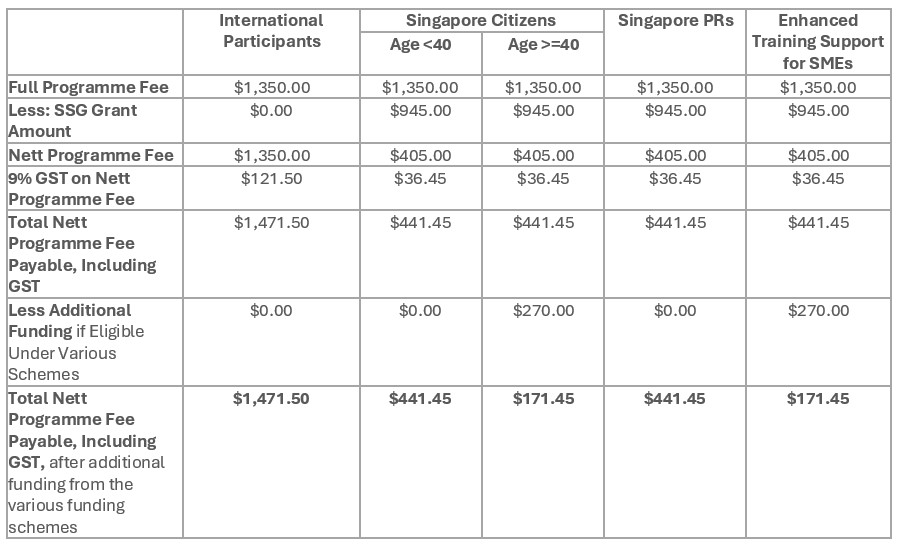Overview
In this century, the interplay between energy and environment will be increasingly important as countries must balance between satisfying increasing energy needs and preserving the environment for sustainable development. Chemistry will be heavily involved in this endeavor. Consequently, it is important for both O and A-level chemistry educators to be informed and updated on recent developments. This course will deal with selected energy resources (batteries, fuel cells, hydrogen and biofuels) and environmental impacts (air, water, climate) of fossil fuels. Connections to relevant examples will be made and recent national initiatives such as the Singapore Green Plan will be discussed to provide real world context. The contents of this course will be suitable for O and A- level chemistry teachers to refresh and increase their knowledge of energy and the environment. Participants will also learn how to use the knowledge acquired from the class and related laboratory demonstrations to promote curiosity-driven and authentic learning of selected O and A-level chemistry topics in energy and environment.
Learning outcomes
Three 3-hour workshop sessions
The course comprises three sessions held on:
Venue: NUS. Location to be announced separately. Format: Relaxed but engaging workshops.
Session 1
Introduction Workshop to Energy and Environment. Three hours.
In this session, participants will be introduced to key topics of energy resources and environmental chemistry. The focus is on the development of the underlying principles in these topics from the topics in the O and A-level syllabus, as shown in Table 1. Participants will also get opportunities to discuss with our lecturer to clear doubts, if any, in the relevant chemistry topics.
At the end of this session, participants will receive guidance on developing a novel classroom idea that can augment their teaching of a selected O and A-level topic covered by the course. This can be in any of the following formats: enhanced lesson plan, context-based learning, micro/macro demo, question bank, student project, etc. A curated list of articles from the Journal of Chemical Education will also be provided as reference. Participants can work in teams of three, or at most four over a period of a few weeks up to Session 3 to explore the adaptation of one or more of these to classroom teaching in their schools. Time required for this assignment is expected to be less than 5 hours.
Energy and Environment Topics | O- and A-level Chemistry Topics |
Air pollution and water pollution. Wastewater treatment |
|
Climate change: global warming, greenhouse gases, acid rain, and ocean acidification |
|
Batteries and Fuel Cells |
|
Hydrogen |
|
Biofuels |
|
Session 2
Energy and Environment Activity Workshop. Three hours.
This session comprises two parts: (a) Experiments in water quality monitoring, wastewater treatment, air quality survey, and removal of airborne particulates and pollutants, (b) Demonstration of water electrolysis for green hydrogen production. Through these activities, participants will gain first-hand knowledge and experience these topics in energy and environment This will boost participants’ confidence to bring this into their classrooms.
Session 3
Energy and Environment Project Workshop. Three hours.
This session provides the finale and forum for participants to discuss their assignment, and teaching challenges. Each team will have about 15 min to present their work, and another 15 min to discuss within the class and with the lecturer. Time for discussion per team might be adjusted based on the number of teams.

NUS reserves the right to make changes without prior notice. Terms and Conditions Apply. Eligible Singapore Citizens and Permanent Residents may enjoy SSG subsidies. Please check with your course coordinator for more detail.
Should you have any questions, please refer to the FAQ here or contact to Syarif at syarif@nus.edu.sg.
Apply now using the NUS Online Application Portal
Dr Foo Maw Lin

Dr Foo Maw Lin studied Chemistry at National University of Singapore and received his PhD in Chemistry and Materials from Princeton University education, United States. He has performed research on materials chemistry and taught in United States, Canada and Japan. His primary interest is in renewable energy education.
